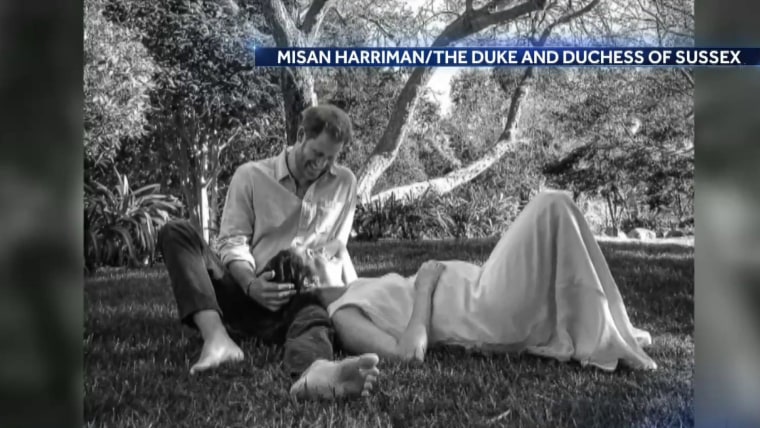On Feb. 14, the Duke and Duchess of Sussex, Prince Harry and Meghan, announced that they’re expecting their second child. The news came less than three months after Meghan penned an op-ed in The New York Times revealing that she had suffered a miscarriage last summer. Among the congratulatory well-wishes (as well as the inevitable “backlash” from those who take issue with the former royals) was a report that the couple initially felt anxious about the pregnancy, which happened quickly after Meghan’s miscarriage. A source close to the couple told People Magazine that Harry and Markle were “nervous, and it took them a while before they could relax and fully enjoy this pregnancy.”
While miscarriage is incredibly common it can result in significant mental and emotional hardship.
As a psychologist specializing in reproductive and maternal mental health, I’ve seen firsthand how anxiety can affect those who become pregnant after having suffered loss of a pregnancy or an infant. While miscarriage is incredibly common — 1 in 4 pregnancies end in miscarriages — it can result in significant mental and emotional hardship. A 2020 study found that 1 in 6 people who experience miscarriage will experience long-term post-traumatic stress disorder symptoms. A subsequent pregnancy that results in a live birth doesn’t diminish or erase the impact of pregnancy loss, and time and time again I have witnessed and helped people whose past miscarriages have greatly affected how they feel about their current and future pregnancies.
It is also something I have experienced myself. In my coming book, “I Had A Miscarriage: A Memoir, a Movement,” I detail the ramifications of my miscarriage and how it shaped the way I felt about the pregnancy that eventually resulted in the birth of my daughter. I lived with what many of my patients had detailed in my yearslong career: anxiety, fear and a sense of being overwhelmed. Hope was tentative, the dread constant.
“In spite of knowing that my baby was chromosomally healthy, the terror of loss continued still,” I wrote in my book. “Until she arrived safely, my daughter — and this thriving pregnancy of mine — felt more like a pipe dream than an eventual reality.”
Heather Livingstone, 28, of Southern California felt the same way about the pregnancy that followed her 12-week miscarriage. For the first six weeks, she refused to acknowledge the pregnancy at all for fear that it would result in another loss, and when her partner did discuss it, she told him to stop so they wouldn’t “jinx” it. Then, when her doctor wanted to conduct an ultrasound to confirm the pregnancy, she could barely bring herself to look at the screen.
“I asked the ultrasound technician to just tell me whether there was a heartbeat before I looked, and she did,” Livingstone tells me. “She said everything was fine. I looked at the screen and didn’t feel anything. I am so embarrassed now about how I barely engaged with that scan. I was able to see the fetus moving around and I saw the beating heart, but I was so scared to get attached. So scared this pregnancy wouldn’t stick around either.”
Again, these feelings are routine. A 2003 study found that pregnancy-related anxiety is higher among those who have experienced previous miscarriages. Another study from 2007 found that people who endure pregnancy and infant loss perceive any subsequent pregnancies as “threatening” and report experiencing heightened vulnerability, anxiety and guarded emotions related to uncertainty about its outcome.
“I wish everyone could understand that pregnancy loss is a deep and painful loss for many people,” Livingstone says. “Moving on doesn’t happen linearly, nor does everything suddenly get better just because you’re pregnant again.”
It’s not unusual for past miscarriages to affect how people feel about their current or future pregnancies, but this reality doesn’t erase the feelings of self-blame and guilt that often go with them. In a society that upholds motherhood as a pivotal tenet of femininity, feeling anything other than elation about any pregnancy can bring feelings of shame, internalized stigma and self-judgment. And until more pregnant people discuss these typical post-miscarriage feelings, especially as they relate to and affect their feelings about any future pregnancies, the shame and stigma are able to thrive.
In a society that upholds motherhood as pivotal tenets of femininity, feeling anything other than elation about any pregnancy can bring feelings of shame.
“The hardest part about losing the pregnancy was that I didn’t know how common it is,” Samantha Gunn, 29, of Alberta tells me. Gunn was 14 weeks along when she miscarried. Two years later, she got pregnant again, but the anxiety haunted her and tempered her joy. It wasn’t until she was in her third trimester that she allowed herself to “settle” into her pregnancy, and even then she lived in near-constant fear. She doesn’t think she’ll opt to try to get pregnant again.
“It was exhausting,” she told me. “And now that my baby is earthside I feel much better and don’t believe I’ll put myself through that again.”
We know that when celebrities and well-known public figures share their pregnancy loss stories, they start vital cultural conversations that work to de-stigmatize miscarriage. The same is true of those who share how those miscarriages can and often do affect future pregnancies. Another positive pregnancy test doesn’t erase the impact of a pregnancy that wasn’t carried to term. The birth of a healthy baby doesn’t decrease or replace the pain of a birth that never was or the silent birth of a baby born sleeping or a birth that doesn’t end with a baby in a car seat, headed home.
Livingstone is 21 weeks pregnant and says everything is going well. Still, she hasn’t officially announced her pregnancy to anyone other than a few close friends and family members. “I think I’m almost ready,” she says. “I know this pregnancy will continue to be more stressful because I am so traumatized by my loss, but I do hope that I am finally able to start settling in and enjoying being pregnant at some point soon.”
Source: | This article originally belongs to Nbcnews.com










